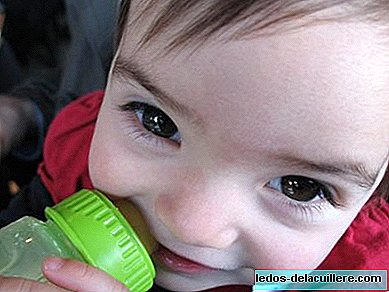
Shortly after our first daughter began to take the complementary feeding, we noticed that her nose turned orange and then we have verified that it happens to many other children. Why do some babies have an orange nose?
The pediatrician told us that if we introduced carrot in his diet, this was likely to happen. The responsible is a compound present in many foods, beta-carotene, but especially in that orange vegetable.
Remember that after six months babies can take vegetables Steamed or lightly cooked, roasted or fried, such as green beans, broccoli sprigs, cauliflower, zucchini, squash, potato, eggplant, carrot ...
The beta-carotenes present in some vegetables (carrot, tomato, pumpkin, spinach) and in some fruits such as orange they can dye the skin of an orange-yellowish appearance. This "hypercarotenemia" is not dangerous, beta-carotenes are essential for skin health and are linked to vitamin A, since they are the precursors of it.
However, the AEP notes that at the beginning of complementary feeding it is advisable to avoid foods that may contain many nitrates (such as beets, cabbage carrot) and delay them up to twelve months. AESAN recommends delaying chard and spinach.
In any case, we can reduce the consumption of these foods if we want to avoid that tone in the baby's nose, which could also appear on the palms of the hands or the soles of the feet. In fact, it is easier for that tone to appear on the extremities, but it becomes more evident on the baby's face.
Anyway, as the child grows that effect is less observed, until it disappears (probably because the range of food is expanded and the number of those responsible is reduced).
But, If your baby's nose turns orange After six months, when you have already tried cooked carrots or vegetable purees, you know what it is due to. Do not forget that your diet must be varied and it is not appropriate to stick to a food regardless of others suitable for your age.












